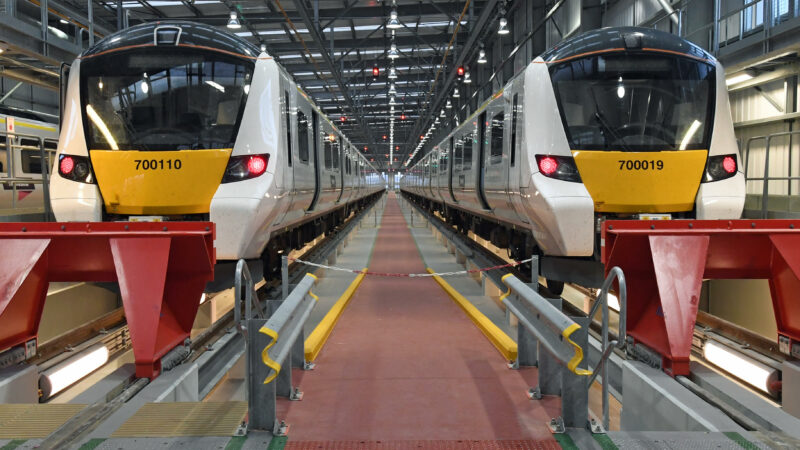
SPONSORED POST
Labour MPs past and present, including metro mayors Andy Burnham and Steve Rotheram, have long banged the drum for greater transport funding for the North. Like everyone in the rail industry, they know that only when investment is delivered across the whole country can we improve lives, better connect communities and spread prosperity to every region.
Now more than ever, investment is needed on Britain’s railways to meet demand and provide a network which places passengers at its core. The rail industry is committed to playing its part in investing to deliver improvements across the country.
In 2020, train companies are undertaking a massive upgrade of trains to improve journeys for passengers in every part of the country. Passengers will see 1,000 extra train carriages introduced over the course of the next 12 months. An estimated £20bn will be spent running and upgrading the railway, improving vital infrastructure like tracks and signalling.
In total, nine operators spanning the length and breadth of Britain are introducing new and upgraded trains. In total, the industry has pledged to deliver more than 8,000 new train carriages by 2025 – equivalent to replacing over half of the country’s fleet, new for old.
Along with 1,000 extra trains next year, the rail industry has introduced an extra 1,000 services per week for 2020. Each extra train means a town, village or city is better connected. A person able to get to a new job. A business linked to a new market. In many cases, much faster than ever before.
New carriages will offer more seats, better Wi-Fi, and improved accessibility, making journeys more comfortable and the time people spend on the train more productive. Improved technology on board new carriages will be able to improve journey planning for passengers, with better information about where their train is and which carriage to board to get a seat.
Importantly, this investment will be felt in communities across the whole country, not just in London and the south. With the long-awaited retirement of Pacer trains, a symbol of chronic underinvestment in the region, the north of England will be a recipient of a major portion of the new carriages being rolled out this year. Across Northern, TransPennine Express and Merseyrail routes, more than 150 new trains are being introduced.
In practical terms, it means that people can more easily do business in towns and cities across the region, growing local economies as small businesses are helped to thrive. Better connections for the apprentice in Stockport getting to a building site in Manchester and more comfortable journeys for the nurse in Bradford travelling to their shift in Leeds.
Investment in new rolling stock from the industry is also furthering rail companies’ commitment to making the railway fairer and more accessible for all, with all new trains on Merseyrail and Greater Anglia’s lines featuring unassisted access and automatic ramps between trains and platforms improving accessibility for disabled passengers.
Rail has a real opportunity to be part of the solution to the fundamental economic, social and environmental challenges Britain faces in the decades to come, but we know it must deliver for passengers today.
The huge investment in new trains and extra services is just part of the picture. The rail industry is committed to bigger, structural change too. We look forward to the forthcoming Williams Review and rail white paper.
Together and with government, rail companies are ready to deliver the once-in-a-generation reform that is needed to make the railway more customer-focussed, joined-up and accountable. Find out more about the new trains coming on track at bigplanbigchanges.co.uk.




More from LabourList
‘After years of cuts, Labour’s local government settlement begins to put things right’
‘The Sherriff of Wild Westminster: what must change in elections bill’
‘The hope that kills you’: Reflections from the final day in Gorton and Denton